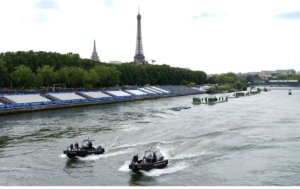Bold Experiment: Reinforcing Arctic Sea-Ice to Combat Climate Change

In a daring attempt to confront the alarming decline of Arctic sea-ice, scientists embark on a groundbreaking experiment, battling the harsh conditions of Canada’s northern coast. Their mission: to combat global warming by reinforcing the dwindling ice cover.
Introduction to Arctic Geoengineering
As temperatures rise and sea-ice diminishes, the Arctic faces a perilous future. In response, a team from the University of Cambridge’s Centre for Climate Repair undertakes an audacious initiative. Their objective: to thicken Arctic sea-ice using a novel geoengineering approach. By pumping seawater onto the ice’s surface, they aim to bolster its resilience against melting, thus mitigating the impacts of climate change.
The Arctic Experiment: A Risky Endeavor or a Necessary Innovation?
Amidst freezing winds and bone-chilling temperatures, researchers brave the elements to execute their plan. By flooding the sea-ice with seawater, they trigger rapid freezing, fortifying the ice cover. Initial results show promising signs of ice thickening, offering a glimmer of hope in the face of rapid Arctic warming. However, experts caution against premature optimism, highlighting the experimental nature of the endeavor and the need for extensive evaluation.
Challenges and Skepticism Surrounding Geoengineering
While the Arctic experiment demonstrates innovative thinking, it also raises significant concerns. Critics, including polar scientists and environmental advocates, question the feasibility and efficacy of geoengineering interventions. They warn of potential ecological repercussions and emphasize the paramount importance of reducing carbon emissions. Moreover, scaling up such initiatives presents logistical hurdles and unknown risks, prompting skepticism within the scientific community.
The Need for Caution and Further Research
Despite the controversy surrounding geoengineering, proponents stress the importance of exploring diverse solutions to address climate change. While acknowledging the limitations of their approach, researchers emphasize the urgency of action in the Arctic. With sea-ice projected to vanish entirely by mid-century, innovative strategies become imperative. However, they emphasize the need for prudence, advocating for thorough research and transparent evaluation before considering wider implementation.
In conclusion, the quest to save Arctic sea-ice through geoengineering represents a bold yet contentious endeavor. As scientists navigate uncharted waters, the debate over the feasibility and ethics of such interventions intensifies. While the path forward remains uncertain, one thing is clear: confronting the climate crisis demands innovation, caution, and collective action.
Re-reported from the article originally published in The BBC News









